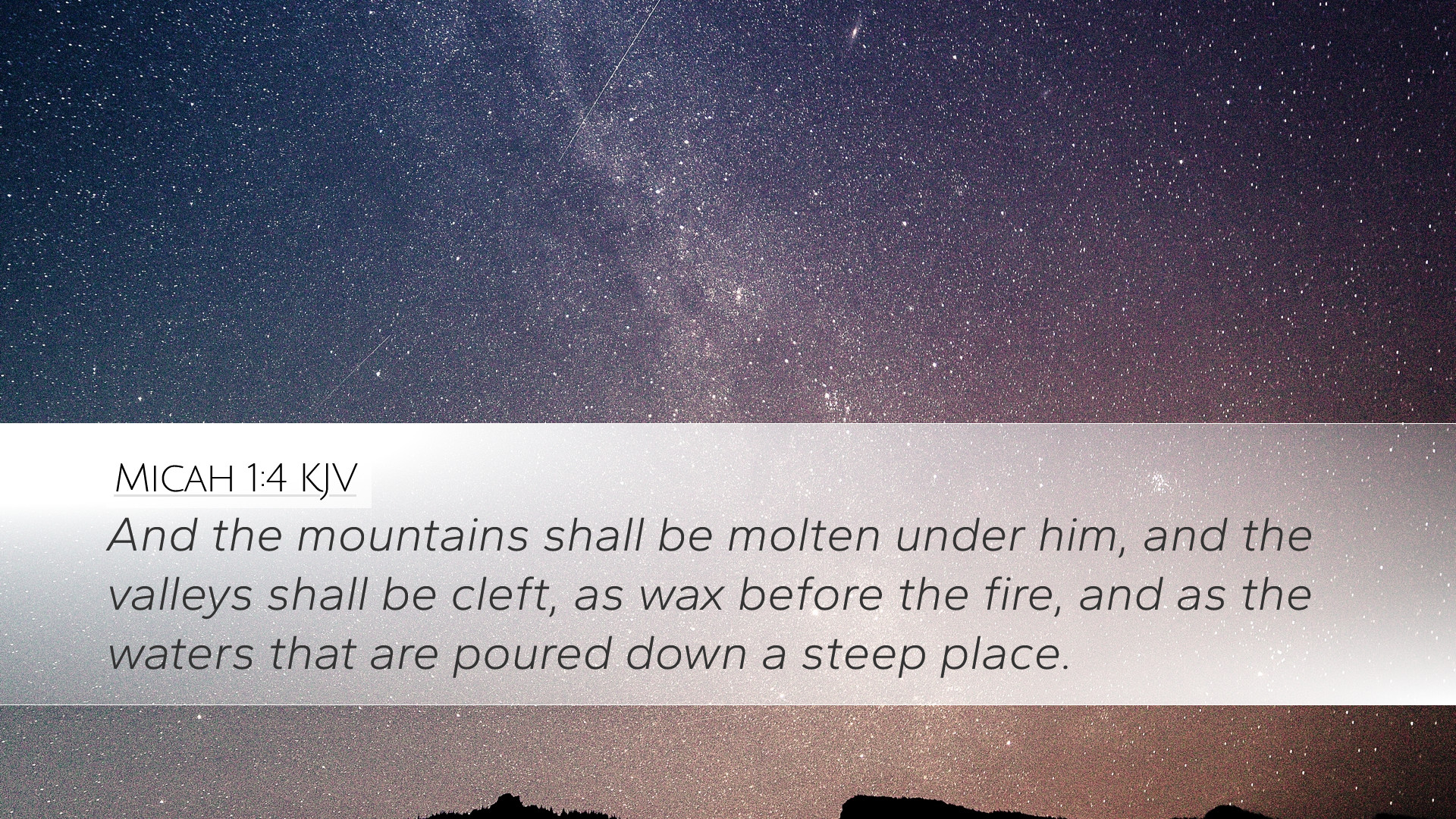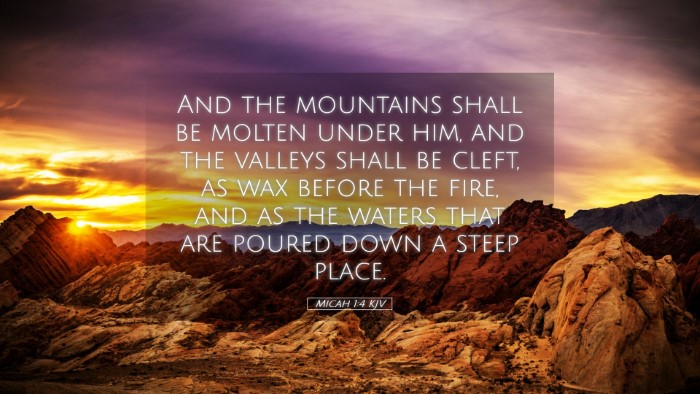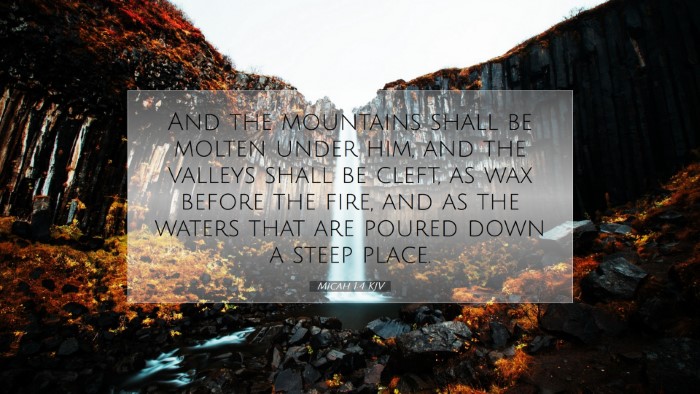Old Testament
Genesis Exodus Leviticus Numbers Deuteronomy Joshua Judges Ruth 1 Samuel 2 Samuel 1 Kings 2 Kings 1 Chronicles 2 Chronicles Ezra Nehemiah Esther Job Psalms Proverbs Ecclesiastes Song of Solomon Isaiah Jeremiah Lamentations Ezekiel Daniel Hosea Joel Amos Obadiah Jonah Micah Nahum Habakkuk Zephaniah Haggai Zechariah MalachiMicah 1:4
Micah 1:4 KJV
And the mountains shall be molten under him, and the valleys shall be cleft, as wax before the fire, and as the waters that are poured down a steep place.
Micah 1:4 Bible Commentary
Bible Commentary on Micah 1:4
Verse Context: Micah 1:4 states, "And the mountains shall be mowed down, and the valleys shall be cleft, as wax before the fire, and as the waters that are poured down a steep place." This verse encapsulates a vivid image that serves as a forewarning of divine judgment.
1. Historical Context
The Book of Micah is a prophetic text that addresses both societal injustices and impending divine judgment. Micah prophesied during a tumultuous time in Israel’s history, around the 8th century BCE, when the Assyrian threat loomed large.
Micah's ministry primarily focused on the southern kingdom of Judah but also spoke against the northern kingdom of Israel. His messages were directed toward both the leaders and the common people, emphasizing a need for repentance and righteousness.
2. Theological Significance
This verse highlights the profound theological concept of God's sovereignty over creation. The imagery of mountains and valleys being altered evokes the power of God to reshape reality according to His divine will.
- Divine Judgment: Commentators note this is not merely a poetic expression but a literal implication of God's judgment upon Israel and Judah for their sin. The “mountains” symbolize strength and permanence, suggesting that even the most steadfast structures will crumble under divine decree.
- Human Frailty: The melting wax before fire is a powerful metaphor for human vulnerability in contrast to divine authority. The fragility of human accomplishments pales in comparison to the sweeping force of God's justice.
3. Commentary Insights
Matthew Henry
Henry draws attention to the terror of God’s impending judgment, indicating that these natural disturbances serve as a reflection of spiritual turmoil. He emphasizes the response of creation to the judgment, portraying both fear and reverence.
Albert Barnes
Barnes underscores the metaphorical language, suggesting that the alteration of landscapes reflects the upheaval that sin brings to the world. According to Barnes, the judgment prophesied here indicates both physical devastation and spiritual desolation as a result of Israel’s unfaithfulness.
Adam Clarke
Clarke provides a historical-critical analysis, emphasizing the context of Assyrian invasion and its consequent socio-political upheaval. He notes that prophetic literature often uses vivid metaphors to convey the seriousness of divine messages and reminds the reader to remain vigilant in moral conduct.
4. Modern Applications
This verse invites contemporary readers to reflect on their moral standing before God. Just as ancient Israel faced consequences for their disobedience, so do modern believers encounter the repercussions of their actions.
- Call to Repentance: Micah’s message is timeless, urging both individuals and communities to examine themselves and seek a restored relationship with God through repentance.
- Understanding Judgment: The imagery used by Micah serves as a reminder that God's judgment is ultimately aimed at leading His people back to righteousness. Believers are encouraged not to despair but to understand the nature of divine discipline.
- Nature of God’s Will: Understanding that God has power over all created things instills confidence in His ability to control present circumstances, encouraging faith among the faithful.
5. Conclusion
Micah 1:4 offers a powerful reminder of the seriousness of divine judgment and the hope of repentance. By drawing on the insights of historical and public domain commentaries, we understand that the profound imagery serves both as a warning and an invitation to reconciliation with God. For pastors, theologians, and scholars, this text remains relevant as they seek to communicate God’s heart to their communities.


